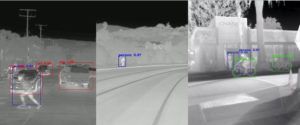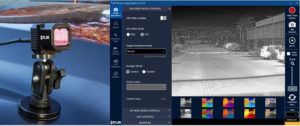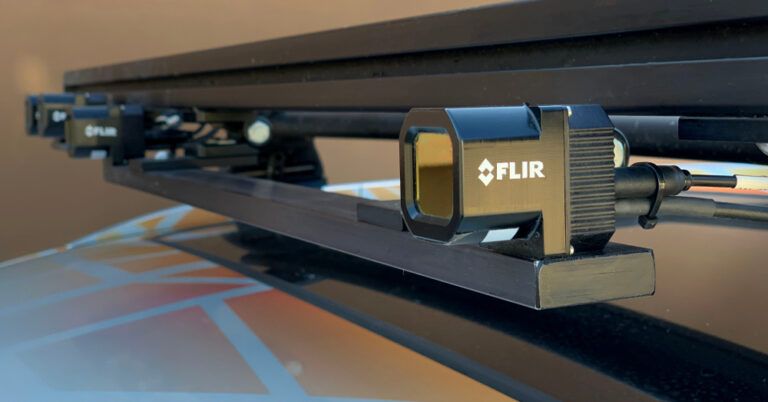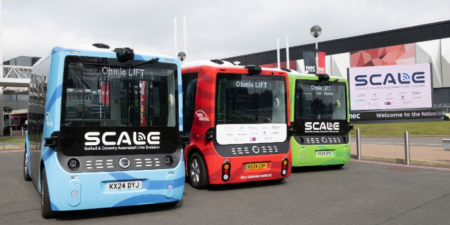Sensor systems and thermal imaging equipment manufacturer, Flir Systems Inc has announced that its Boson-based thermal sensing technology has been selected by Veoneer, a Tier-1 automotive supplier, for its SAE Level-4 autonomous vehicle (AV) production contract with a top global automaker, planned for 2021.
The Veoneer system will be the first in the industry to include multiple thermal sensing cameras that provide both narrow and wide field-of-view capabilities to enhance the safety of self-driving vehicles. Thermal sensing cameras excel in driving situations where other sensor technologies are challenged, including low-visibility and high-contrast conditions such as: night-time, shadows, dusk, or sunrise; while facing direct sun or headlight glare; and in challenging weather conditions including fog and environmental conditions such as smoke. When combined with analytics, thermal sensing cameras can help detect and classify a broad range of common roadway objects and are especially adept at detecting people and other living things, which AVs want to avoid most.
 With the ability to see up to four times farther than headlights at night, thermal sensors detect the heat given off by everything. This ‘invisible’ advantage offers additional data to the existing suite of AV sensors to improve reliability and redundancy, thereby facilitating better decision making. Flir thermal sensing cores are also part of Veoneer’s fourth generation thermal sensing system scheduled to launch next year. With more than a decade of experience in the automotive industry, Flir has been a key partner of Veoneer to support driver early-warning systems in vehicles from General Motors, Volkswagen, Audi, Peugeot, BMW, and Mercedes-Benz. This latest contract represents a new phase for FLIR and its thermal sensing technology for the benefit of automated, or self-driving vehicles.
With the ability to see up to four times farther than headlights at night, thermal sensors detect the heat given off by everything. This ‘invisible’ advantage offers additional data to the existing suite of AV sensors to improve reliability and redundancy, thereby facilitating better decision making. Flir thermal sensing cores are also part of Veoneer’s fourth generation thermal sensing system scheduled to launch next year. With more than a decade of experience in the automotive industry, Flir has been a key partner of Veoneer to support driver early-warning systems in vehicles from General Motors, Volkswagen, Audi, Peugeot, BMW, and Mercedes-Benz. This latest contract represents a new phase for FLIR and its thermal sensing technology for the benefit of automated, or self-driving vehicles.
Flir’s Boson longwave infrared (LWIR) thermal camera module has been developed to set a new standard for size, weight, power, and performance (SWaP). It uses Flir infrared video processing architecture to enable advanced image processing and several industry-standard communication interfaces while keeping power consumption low. The 12 µm pitch Vanadium Oxide (VOx) uncooled detector comes in two resolutions: 640 x 512 or 320 x 256. The camera unit is available with multiple lens configurations, adding flexibility to integration programs for multiple applications.
“As the automotive industry undertakes the enormous technical challenge of building safe autonomous vehicles, cutting-edge sensing technologies, including thermal, are needed to save lives and provide greater situational awareness in all conditions,” said Frank Pennisi, president of Flir’s industrial business unit. “Our automotive-qualified thermal sensing cores are a key component of Veoneer’s thermal sensing cameras and systems, which have proven effective on hundreds of thousands of passenger vehicles to date. This selection shows the value of thermal sensing for self-driving applications, paving the way for future adoption by other automotive manufacturers.”





